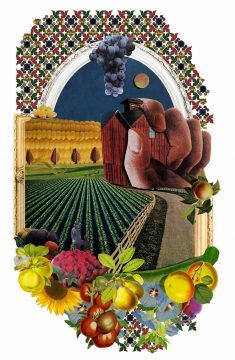George Scialabba in The Baffler:
 AN ANTIMODERNIST is someone who stands in the path of progress and yells “Stop!” Of course different antimodernists want to stop different things. The first antimodernists, the Luddites of early nineteenth-century England, wanted to stop power looms from replacing (and thereby starving) weavers, to the considerable profit of textile industrialists. John Ruskin and William Morris in late nineteenth-century England wanted to stop the comely landscapes and buildings of the English countryside from being razed to make way for cheap and ugly but profitable new construction, both commercial and residential. William F. Buckley Jr., who coined the phrase about standing “athwart history, yelling Stop,” wanted to stop democracy, racial and sexual equality, and pretty much everything else humane and good, but above all, progressive taxation. (He was rich.) Ivan Illich wanted to stop expertise, which he thought had trapped modern men and women in universal dependence. Christopher Lasch wanted to stop mass society, which he showed, with a wide-ranging critique spanning history, sociology, and psychoanalysis, produces people who are less able to resist authority than those who grow up in a human-scale, largely face-to-face society.
AN ANTIMODERNIST is someone who stands in the path of progress and yells “Stop!” Of course different antimodernists want to stop different things. The first antimodernists, the Luddites of early nineteenth-century England, wanted to stop power looms from replacing (and thereby starving) weavers, to the considerable profit of textile industrialists. John Ruskin and William Morris in late nineteenth-century England wanted to stop the comely landscapes and buildings of the English countryside from being razed to make way for cheap and ugly but profitable new construction, both commercial and residential. William F. Buckley Jr., who coined the phrase about standing “athwart history, yelling Stop,” wanted to stop democracy, racial and sexual equality, and pretty much everything else humane and good, but above all, progressive taxation. (He was rich.) Ivan Illich wanted to stop expertise, which he thought had trapped modern men and women in universal dependence. Christopher Lasch wanted to stop mass society, which he showed, with a wide-ranging critique spanning history, sociology, and psychoanalysis, produces people who are less able to resist authority than those who grow up in a human-scale, largely face-to-face society.
Wendell Berry is probably the best-known and most influential antimodernist alive today, at least in the English-speaking world. Besides being a prolific essayist, novelist, story writer, and poet, Berry is a farmer in the Kentucky River Valley, an experience that has provided him with his material, his message, and his pulpit. He did not come to farming in midlife, as a novelty or a pastoral retreat. He grew up where he now farms, and his family has been farming in the area for many generations.
More here.
